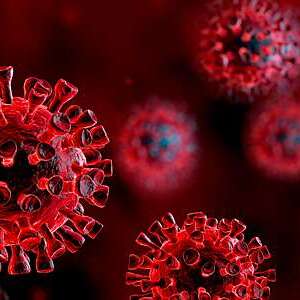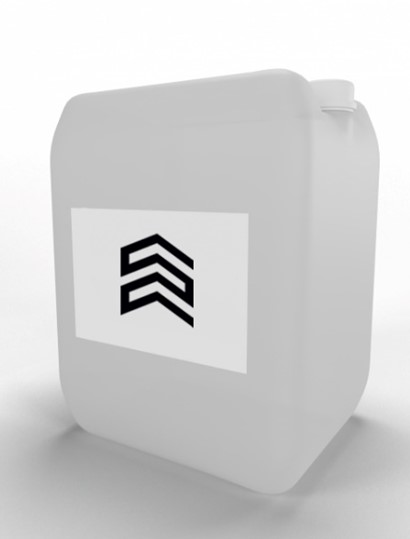Scientists evaluate the potential of cancer treatment with coronavirus

The use of coronavirus for the treatment of cancer is theoretically possible, said virologist, Corresponding Member of the Russian Academy of Sciences, HEAD of the Laboratory of Cell Proliferation at the V.A. Engelhardt Institute of Molecular Biology of the Russian Academy of Sciences Petr Chumakov in an interview with journalist Olga Kopylova’s project “Advise, DOCTOR!”.
According to the scientist, he was faced with an improvement in the condition of oncological patients who had recovered from the coronavirus. “I had patients who had covid and they had very strong relief, an improvement in their condition,” he said.
The ability of viruses to fight cancer has long been known, Chumakov added. He explained that tumor cells lose their antiviral protection, their interferon system (interferons are proteins secreted by cells in response to a virus invasion. -) and it is easier for viruses to replicate there.
It is possible to use coronavirus as an oncolytic drug, but for this it is necessary to “completely remove its infectivity” so that it does not have pathogenicity, Chumakov notes.
“It’s another matter whether it’s worth doing this from a virus like coronavirus, there are many less dangerous viruses from which such oncolytic viruses are already being created, but as one of the options, yes, it’s possible,” he added.
As an example of viruses that are used to treat cancer, the scientist named enteroviruses (the name is associated with their reproduction in the gastrointestinal tract. -), which can be selected for the treatment of specific cancer patients. At the same time, Chumakov made a reservation that, depending on individual sensitivity, they can either give a result or not. “Tumor cells have very individual mutations. No two human cancers are the same. Even one histological type,” he said.
The head of the Department of Antitumor Drug Therapy of the Podolsk City Clinical Hospital, Doctor of Medical Sciences Mehdi Narimanov, also spoke in an interview with a journalist about two cases in his practice when cancer patients were completely or partially cured of cancer after a severe form of COVID- 19 .
Read PIONERPRODUKT .by Ask employees: how to predict the bankruptcy of a company before auditors When and why to expect a rise in gold pricesIn the first case, we are talking about a woman who suffered from rectal cancer with metastases that affected the lungs. According to Narimanov, the patient had her chemotherapy suspended for two months when she became seriously ill with the coronavirus. She later had a computed tomography (CT) scan of her lungs and no metastases were found. The result, according to the doctor, was confirmed by positron emission tomography (PET-CT).
The second episode concerned a patient diagnosed with cervical cancer. The woman also had a severe form of covid-19, and after recovery, doctors registered a “complete regression” (Peregrine syndrome is known as a spontaneous cure of cancer without specific therapy, partial or complete “resorption” of the tumor or metastases) of cancer without recurrence for three years .
“I believe that this is due to the oncolytic property (the ability to infect and kill cancer cells. -) of the coronavirus,” Narimanov concluded.
The use of coronavirus for the treatment of cancer is possible, including if its pathogenicity is eliminated, but the use of safer viruses is preferable, Alexander Lukashev, a virologist, corresponding member of the Russian Academy of Sciences, DIRECTOR of the Institute of Medical Parasitology, Tropical and Vector-borne Diseases of Sechenov University, confirmed in a conversation with RBC . Coronaviruses are not the most obvious choice as a cancer treatment, as they are quite dangerous and relatively difficult to work with, but "nothing is impossible here," he said.
The expert agrees with Chumakov's opinion that there are many viruses for oncology therapy with a more favorable ratio of safety and efficacy. “If we are talking about the use of coronavirus, then the specific strain is not particularly important here. You can use not only covid, but also respiratory coronaviruses, but here the limiting factor will be that most of the population has antibodies to both the covid pathogen and other respiratory coronaviruses, ”he explained.
Lukashev added that adenoviruses, the herpes virus , the vaccinia virus, and a number of animal viruses are most often studied for the treatment of oncology . “A person does not have antibodies to animal viruses, these viruses are not pathogenic for humans, but they can kill human tumor cells. These are, for example, the Newcastle avian disease virus, the vesicular stomatitis virus of horses, ”he notes.
The scientist also described the mechanism of using viruses in the treatment of cancer, the simplest of which is the introduction directly into the tumor. On the other hand, Lukashev notes, if it is known where it is, it can be removed surgically. The most promising option is the introduction of the virus intravenously to destroy tumor metastases, even those that the doctor may not know about. “But this path is much more difficult, because the virus must be effective, it must not be recognized by our immune system,” he stressed.
Treatment with viruses is more effective for certain types of cancer, says Lukashev. It is most effective to use it for melanoma, glioblastoma, kidney tumors and some other types of oncology, he explained.
“There are about a thousand clinical trials in the world and there are examples of very successful cures. All over the world, this industry is actively developing and in recent years it has begun to develop in our country. But there are still very few drugs that have come a long way in clinical trials and are approved for clinical use, and we don’t have them in our country,” the scientist concluded.
Read together with it:
- Maduro has given himself new powers in the event of war with the United States.As the Venezuelan Vice President clarified, the decree will come into force in the event of external aggression, which could be based on US military intervention. Venezuelan President Nicolás Maduro signed a decree granting him additional security powers in the event of a military invasion of the country, Venezuelan Vice President Delcy Rodríguez announced, Finanzas Digital reports. She announced ...





























































